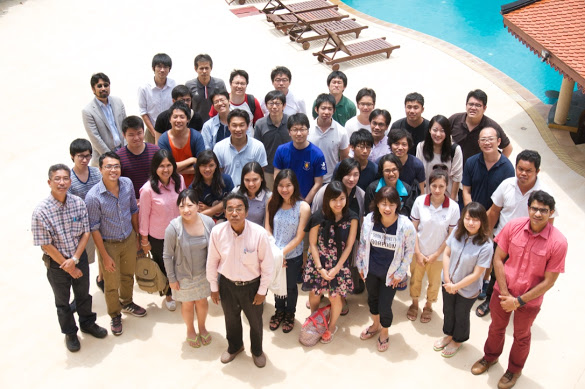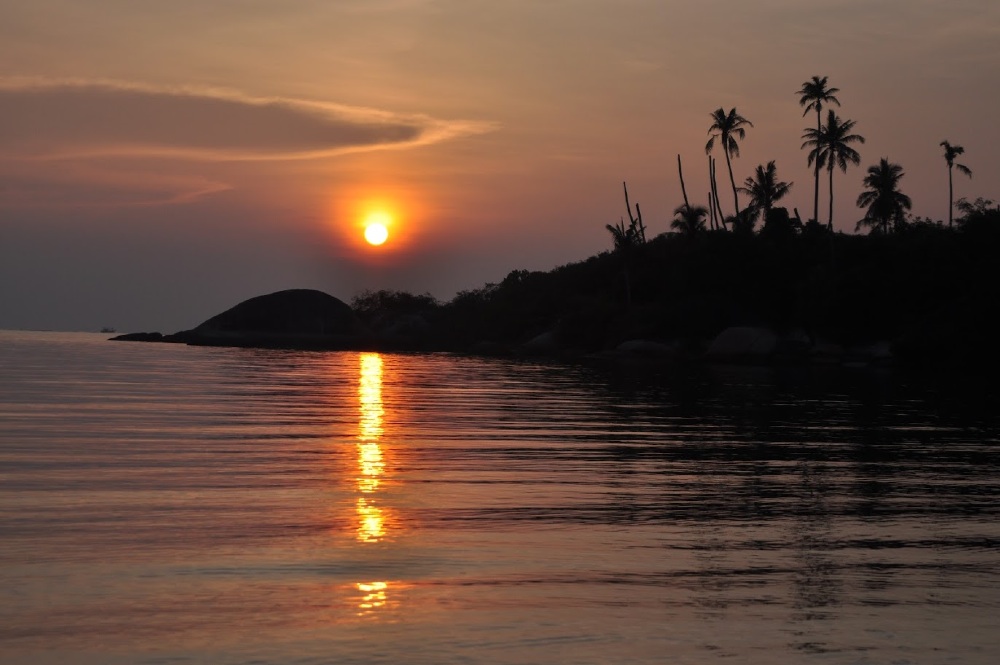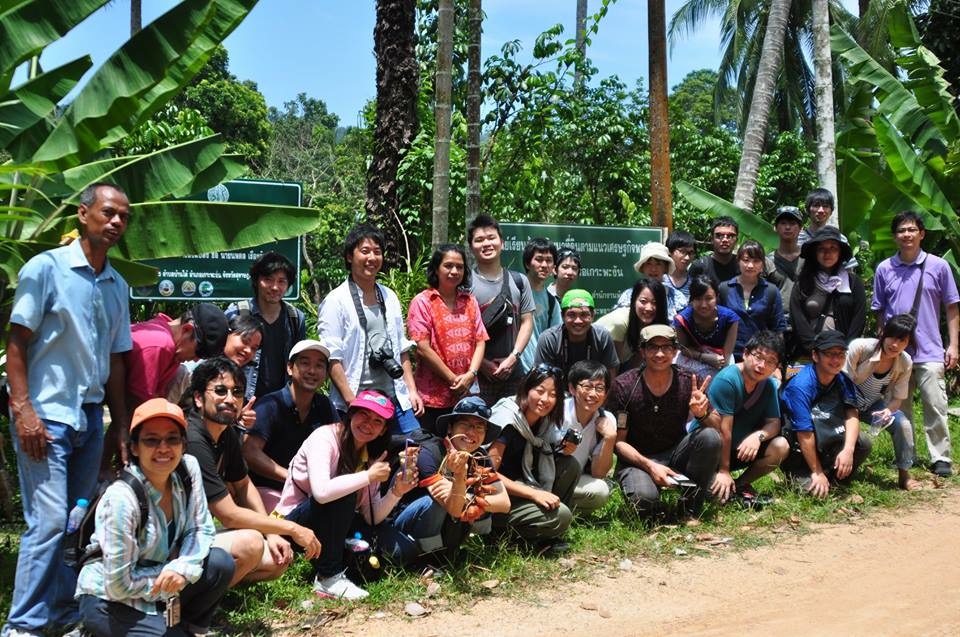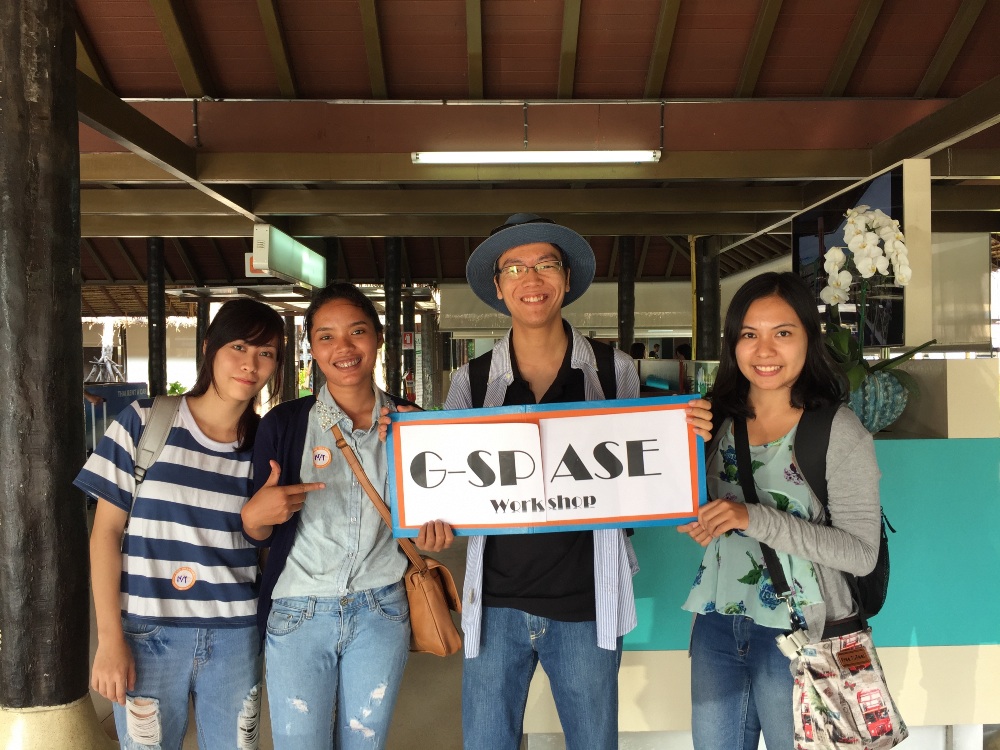NEWS
21
SEP
2015
2015 Summer School @ Ko Pha Ngan Island, Thailand
2015.09.21 ~ 2015.09.23
-
- CATEGORY: Summer School
NEWS
21
SEP
2015
Summer School
G-SPASE Summer School gathered students from diverse fields. From September 21st -23rd, 2015, we conducted fieldwork and made a proposal to solve issues in Ko Pha Ngan Island.
 Summer School 2015(1)
Summer School 2015(1)
Members from Various Backgrounds Immersed in Problem Solving
Summer School 2015 was held in the purpose of “articulating current issues and proposing a solution.” During 3 days, many students from varying expertise came together to work on the same goal. Students went on to fieldwork to observe and identify problems with their own eyes. In the workshop, they analyzed the root cause of the problem, came up with unique solutions and designed their services. In the end, they made presentations in front of government-related researchers and island residents and shared valuable opinions.
In this program, 7 professors and 29 students from (1) The University of Tokyo, (2) Keio University, (3) Tokyo University of Marine Science and Technology, (4) Graduate School of Project Design and (5) Asian Institute of Technology participated in the workshop. In line with the system design process, each university with specialty in GIS, UAV and satellite technology provided solutions to the exercise. Each team sweated heavily working under direct sunlight and studied around-the-clock. After the final presentation, every participants felt great sense of relief and accomplishment.
 Thailand
Thailand
G-SPASE and Ko Pha Ngan Island
The University of Tokyo is sending professors and researchers to the Asian Institute of Technology in Thailand to promote the wide use of satellite data and geospatial information. Recently, the research is deeply engaged in launching collaborative project with the Office of Agriculture Research and Development, Surat Thani Province, Ko Pha Ngan Island. It is conducting joint research in forest monitoring and biomass estimation. We have heard from the island leader of issues in pest damage of coconut trees, environmentally friendly tourism and social relationship restraints with the tourists and the residents of the island. This conversation initiated the summer school. With continuous hosting of the workshop, we plan to propose solutions to the Thailand government, together with the researchers and leaders of Ko Pha Ngan Island in the future.
Location of Ko Pha Ngan Island
Ko Pha Ngan Island is located in the western coast of Thailand. The population is approximately 11,000. “Pha” is a conjunctive and “Ngan” means “pillar of the sand.” It is 30 minutes distance by ferry from the Ko Samui Island. It attracts tourists worldwide because of its amazing sea and beach. The main industry is consisted of tourism, agriculture and fishery. Each year, a full moon party is held in the eastern part of the island. About 20,000 young people visit the island from Western countries to participate in the full moon festival. Coconuts are harvested everywhere. With its velvet touch white beaches, it is one of the best tropical resorts in the South East Asia region.
 Workshop
Workshop
Design Process of Solution
1. Setting
〈Day 1〉
・Grouping
Sharing motivation within team members
・Theme Selection(Agriculture, education, tourism etc)
2. Discussion
・Problem Definition(using geospatial open data)
3.Fieldwork
〈Day 2〉
・Overall fieldwork (architecture, coconut farm, livestock barn)
・Team fieldwork(Recording of data using wearable cameras and GPS loggers)
4. Idiation
1. Brainstorming
2.Organization and selection of ideas that are high in social impact and feasibility
3. Creation of concrete and continuous service based on customer value analysis
5. Presentation
〈Day 3〉
Final presentation of each team.
6. Feedback
・Feedback from the village representatives
・Best team selection by participants voting
・Comment from the village leader
Team Interview
Preventing Pest Damage using UAV
In this program, 5 teams worked on individual workshop themes. With only 3 days, how did they present a solution? Here, we will introduce the interview with the team that worked on pest damage prevention of coconut trees.
-What theme did you work on?
Pha Ngan Young Island is famous for its coconut cultivation. However, many trees die down by pest damage. There are no effective solution found, yet. So we decided to tackle the problem.
-Why did you choose that theme?
One person mentioned in the presentation that the coconut tree issue was the largest on the island. In the fieldwork, we actually saw many damaged coconut trees. That was the trigger in selecting the theme.
-Using UAV in research is innovative.
At first, we were interested in using remote sensing and data analysis of the satellite. We were focusing on the cause of the pest damage and the way to exterminate the insects. In hindsight, that was narrow-minded. After a while, we gained a hint from Professor Nagai from the Asian Institute of Technology that the observation of the leaf was important. We had a team member who was bringing UAV with him so we came to the conclusion to monitor the leaf of the tree which is difficult to see from the ground. We went to the coconut farm and made a demonstration flying the UAV and took a picture.
-What is your future prospective?
We want to investigate how the workers of the farm can operate the UAV. There are many issues regarding operation. By setting a hypothesis, we want to visit the island again and verify the outcome.
Theme of Final Presentation
1. Pha Ngan Young Island Animal Habitation
Proposal of tourist participation in mapping terrestrial animal habitation to attract sightseeing besides the sea.
2. Pha Ngan Young Tour
Proposal of cheap tours by teaching children English.
3. Pest Prevention of Coconut Palm Trees
Proposal of method to protect local specialty coconut trees.
4. Coral Reef–friendly Ship Route
Detection and visualization of ship route avoiding coral-reef areas using satellite positioning.
5. Improvement of Pest Damage Monitoring
Proposal of coconut tree monitoring using UAV.
Voice of Participants
Keio University, Akihiko Nishino
In G-SPASE, each participants have their own sense of purpose. We are collaborating and sharpening our skills overcoming borders. In this year’s summer school, we created new value using diversity in full extent. We went on fieldworks and checked out problems with our own senses. The strength and magnificence of G-SPASE is the expansion of international network providing one with new viewpoints, ideas and connections.
Tokyo University of Marine Science and Technology, Hiroko Tsuchikura
I participated in the G-SPASE project as a student involved in researching satellite positioning. Participants truly vary in background and that is what makes this activity such attractive. We shared knowledge, expertise and lots of opinion. I felt that my research has broadened as well. The summer school only lasted for 3 days but it was invaluable experience going through the entire solution proposal process.
Graduate School of Project Design, Chika Kuroda
I certainly felt that this project would be the drive in making services integrating space and geospatial technology. The open-hearted and enthusiastic atmosphere was fabulous. We respected each other’s culture, overcame language barriers and collaborated interdisciplinary. I’m looking forward to the ongoing project.
Asian Institute of Technology, Anussara H.
Such as brainstorming and conceptualization, I was able to learn methods to turn ideas into reality. Communicating with members in different domains was stimulating. I was deeply satisfied.
Tokyo University, Satoshi Miyazawa
This summer, Japanese and Thailand students came together to discuss issues of the island. We proposed a solution from the geospatial point of view. Each participants’ curiosity enhanced international collaboration. I felt the dichotomy between the workshop and the real voice of the people actually living on the island.
 Summer School 2015(2)
Summer School 2015(2)
 Summer School 2015(3)
Summer School 2015(3)
 Summer School 2015(4)
Summer School 2015(4)